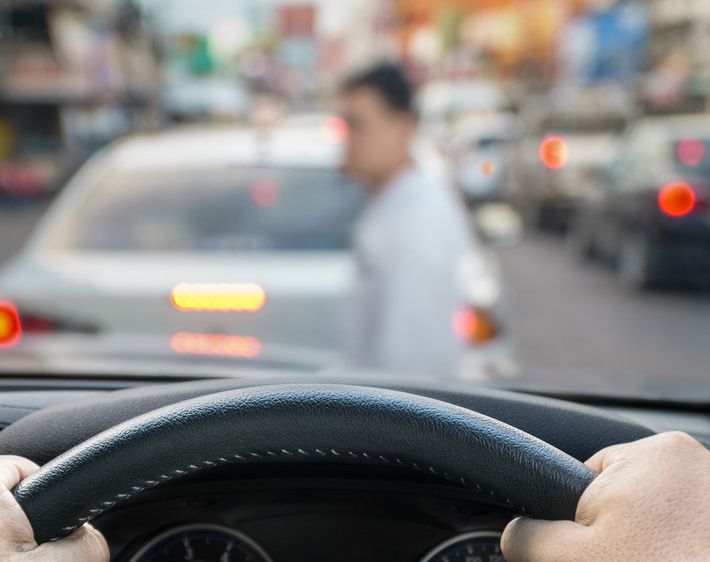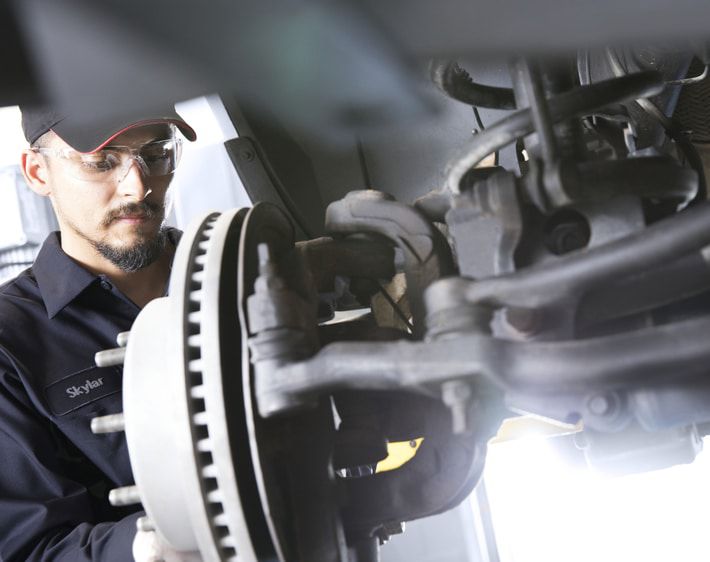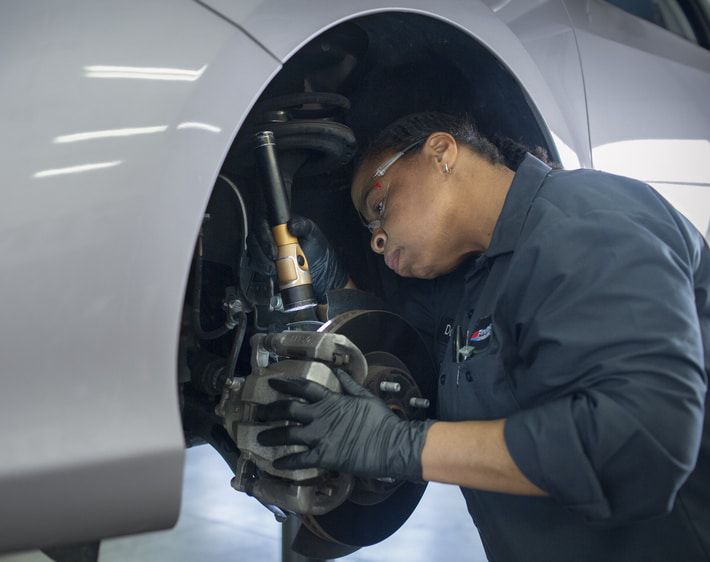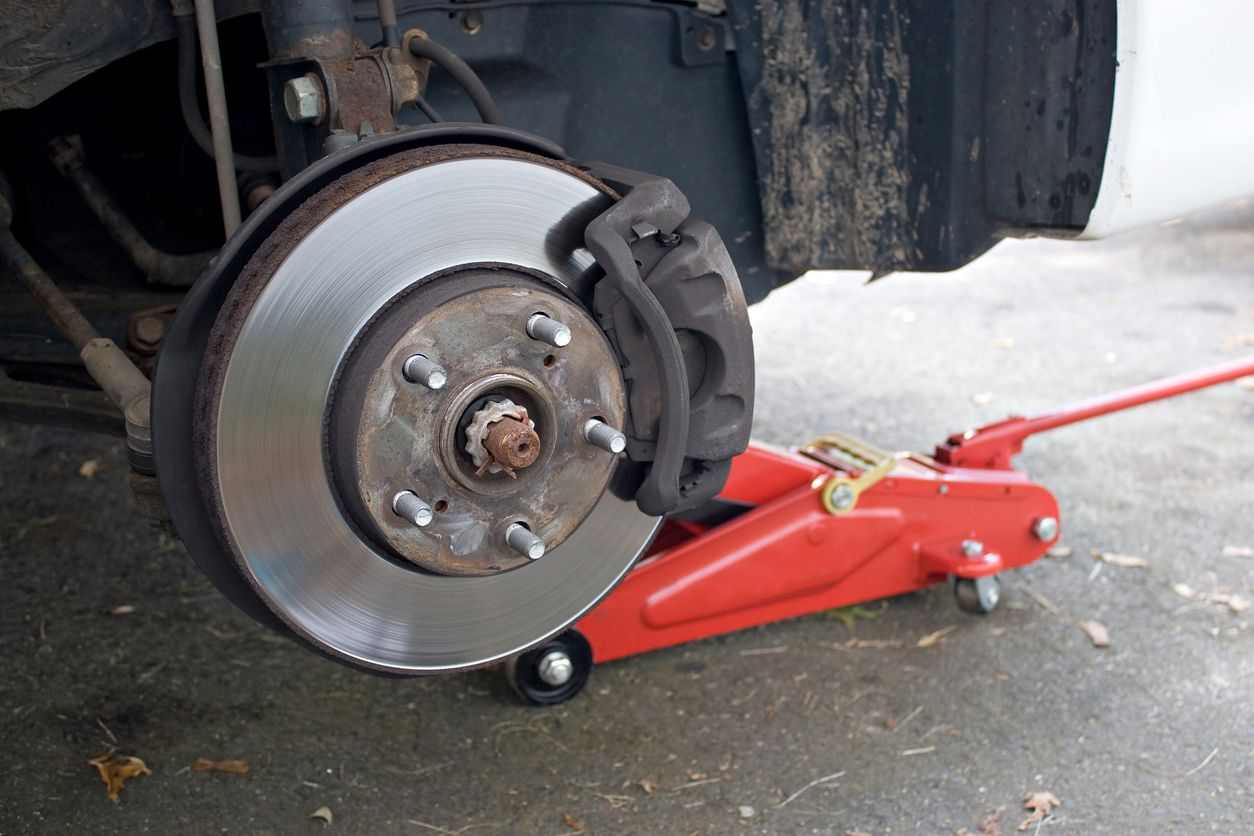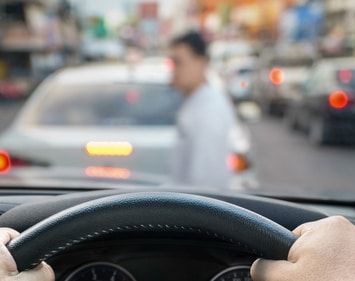
Ever wonder what it can do to your braking system and the rest of your vehicle? Turns out, it's just as bad for your car as it is for your nerves. Here's why you might want to avoid slamming on the brakes unless it's absolutely necessary, and shoot for smooth braking instead.
Slamming on the Brakes Could…
Cause an Accident
Slamming on the brakes might cause you to lose control of your car, particularly on wet or snowy roads, and wind up in an accident.
Even if you don't collide with another car, slamming on the brakes may throw you or your passengers forward. This sudden motion could make everyone's heads jerk, causing neck or even brain injuries. That's scary enough to make anyone think twice about slamming on the brakes.
Reduce Gas Mileage
"Aggressive" driving, such as slamming on the brakes and going over the speed limit, can reduce highway gas mileage by as much as 30% and city gas mileage by as much as 40%, according to a 2017 study by the U.S. Department of Energy.
Trigger ABS When It's Not Needed
Your car's anti-lock braking system, or ABS, prevents your wheels from locking up and sending your car into a skid. It's a critical safety feature of modern vehicles.
But slamming on the brakes may cause your ABS to kick in when it isn’t needed. Doing so could wear out the anti-lock brake system prematurely and leave you with less than show-stopping brake performance.
An illuminated ABS light or unresponsive brake pedal are two signs your ABS could be out of whack after a brake slam.
Wear a Flat Spot on Your Tires
Let's say you drive an older model car that doesn't have ABS (i.e., no mechanism to stop your brakes from locking up). If you’ve slammed on your brakes recently, you might want to get your tires checked. Hard, sudden braking can cause flat-spotting.
Flat-spotting happens when your wheels lock-up and your car skids, causing one section of each tire to stay in contact with the pavement while the vehicle slides forward.
When this happens, the area of the tire that’s in contact with the road endures more-than-normal friction and heat, causing uneven wear and a flat spot on the tread. It's like rug burn, but for tires.
You may feel a thump thump when driving or smell burnt rubber if you slam on your brakes hard enough to "flat spot" your tires.
Overheat the Brake Pads
Brake pads come into contact with your rotors and create friction to slow and stop your car. Going from 60 to 0 in a couple of seconds places extra stress on your car’s suspension while also exposing your braking system to excess heat.
When your brakes overheat, the brake pads can wear down quicker and the rotors may warp—two things that could compromise your car’s stopping power and safety. Worn brake pads can cause problems in other parts of the system, too.
How do you know whether your brake pads are worn after a pedal stomping? Signs can include squeaks when braking, a shaky steering wheel, or an illuminated brake light on the dash.
Damage Brake Hoses
When you push on the brake pedal, brake fluid travels through the brake hoses and converts your "push" into energy that brings the car to a stop.
The heat and pressure generated when slamming on the brakes can cause tears and cracks in the hoses. Such damage can result in fluid leaks that eat away at your brake pads. Left unchecked, brake fluid levels can become low and render your brakes completely unresponsive—severely compromising your safety on the road.
If your dashboard brake light comes on or the brake pedal goes all the way to the floor when you press it, your brake hoses may need immediate attention.
Compromise the Drive Shaft
The drive shaft delivers torque from the engine to the wheels—quite literally making your wheels turn. Mechanically-speaking, the drive shaft is comparable to your hip or shoulder joint, since it’s ball-and-socket structure allows it to move and rotate in multiple directions. Slamming on the brakes can cause said “joint” to dislocate, creating a disconnect between your engine’s power and your vehicle’s wheels.
Symptoms of an injured drive shaft include a vibrating sensation when the car accelerates, rattling or squeaking noises, or abnormal resistance when turning corners.
Hurt Your Car
People jaywalk. Highway pile-ups happen. The road is an unpredictable place and sometimes, you can't help but slam on your brakes like there's no tomorrow (because you want to make sure there is a tomorrow).
But now that you know how slamming on the brakes might damage your car, you probably want to do your best to avoid making it a habit. You can better anticipate hard braking by steering clear of distracted driving.
Be prepared for pedal-smashing hazards by noticing points in your commute where you commonly encounter pedestrians, pile-ups, and limited sight distances. Seeing hazards ahead of time can help you avoid a surprise, and therefore a brake slam.
If you find yourself dealing with wonky brake performance after stomping the pedal, get a quick brake check at your nearest Firestone Complete Auto Care. All power is useless without stopping power!
